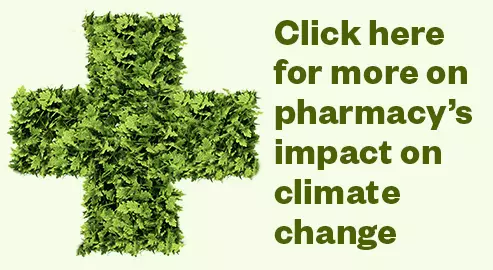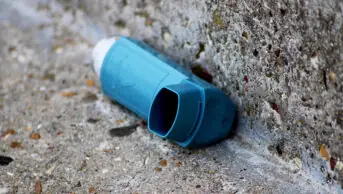
Mclean
Our planet’s climate and sustainability crisis is just as urgent a public health emergency as the COVID-19 pandemic, but it has been hugely overshadowed.
The World Health Organization (WHO) reports that climate change is responsible for at least 150,000 deaths per year, a number that is expected to double by 2030. The evidence is mounting: changes in weather patterns are already leading to a worsening in infectious diseases and spikes in deaths and respiratory disease caused by heat waves around the world.
The perception is often that this is something happening to people very far away and there is nothing that we as individuals can do, but both of these are incorrect.
To give two examples: vulnerable populations were badly affected by the 2003 heatwave in Europe, which claimed approximately 35,000 lives. Then, in 2006, the UK had an outbreak of Legionnaires’ diseases affecting over 100 people — a bacterial lung infection that scientists attribute to climate change.
We want to redress the balance and begin a debate about how pharmacy can help tackle these problems
In an article for The Pharmaceutical Journal published on 10 May 2021, Tracy Lyons — founder of Pharmacy Declares, a body of pharmacy professionals who called for action on climate and sustainability from pharmacy — said: “We are professionally obligated to speak out when something is wrong, but we have ignored the worst health threat in the history of human life on earth,” she said.
We all have a role to play, both individually and collectively, but this is such a big issue and it can be hard to know where to begin.
Medicines, and their manufacturing and supply, have a profound impact on carbon dioxide emissions created by the NHS, making up a quarter of the total. There are initiatives to reduce emissions from anaesthetic gases (2% of NHS emissions) and inhalers (3% of emissions), but there is much more that can be done. What about the use of single use plastic in pharmacy? Or the potential for medicines reuse or initiatives ensuring care is given more locally, or condensed into a single visit, to prevent patients from having to attend multiple appointments? There are many ways that pharmacy can help.
With the UK hosting the 26th UN Climate Change Conference of the Parties (COP26) in Glasgow on 1–12 November 2021, we have a now-or-never opportunity to tackle this issue. That is why we are launching a call for papers on the climate emergency and pharmacy sustainability. We want to redress the balance and begin a sector-wide debate about how pharmacy, and those working in it, can help tackle these problems.
Over the next year, The Pharmaceutical Journal promises to do its bit to help encourage the profession of pharmacy to be greener and more sustainable, and we invite all types of submissions or ideas about how we can achieve this. We will also push for change, highlighting the areas where the pharmacy profession, the wider health service and the pharmaceutical industry can take action. PJ
Green pharmacy: a call for papers
The editors at The Pharmaceutical Journal invite ideas for articles, blogs or research papers from all sectors of pharmacy and the pharmaceutical industry that relate to the climate emergency or the sustainability of pharmacy.
For example:
- Any potential or current initiative to reduce the impact of medicines, their manufacture or supply on the environment and/or climate (e.g. switching patients from meter dose inhalers to dry powder inhalers, reducing volatile anaesthetic gas use);
- New ideas to reduce waste and/or boost recycling of medicines (e.g. individually tailored medicine, better manufacturing, packaging or disposal of medicines);
- Ways of optimising the location, type or speed of care to reduce the impact on the environment (e.g. carrying out care closer to home or digitally, faster diagnosis to allow for less intensive treatment, a reduction in unnecessary visits or interventions);
- Educational initiatives to inform healthcare professionals or patients about the better use or disposal of medicines (e.g. undergraduate teaching about green pharmacy, schemes to get patients to return unused medicines).
This is not an exhaustive list. We welcome any ideas or submissions on this, or a closely related, topic. Please email: editor@pharmaceutical-journal.com. Please consult our guide for authors for information about the type of articles we publish.
This call will last for three months, from 18 June 2021 to 17 September 2021, but articles may be published earlier or later than these dates.



